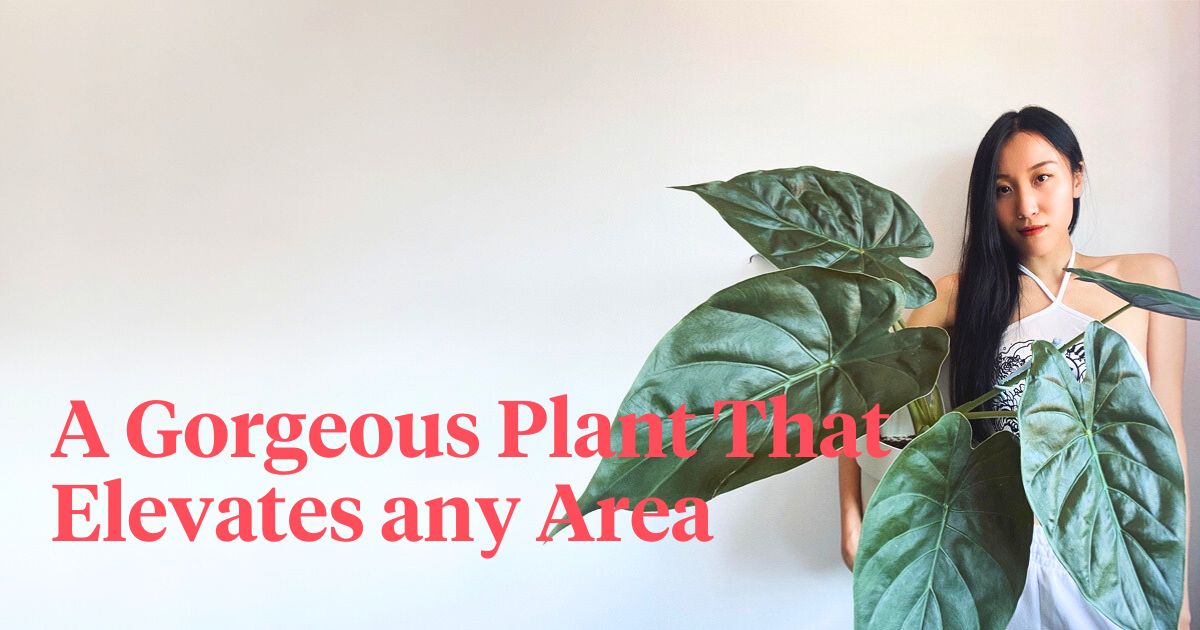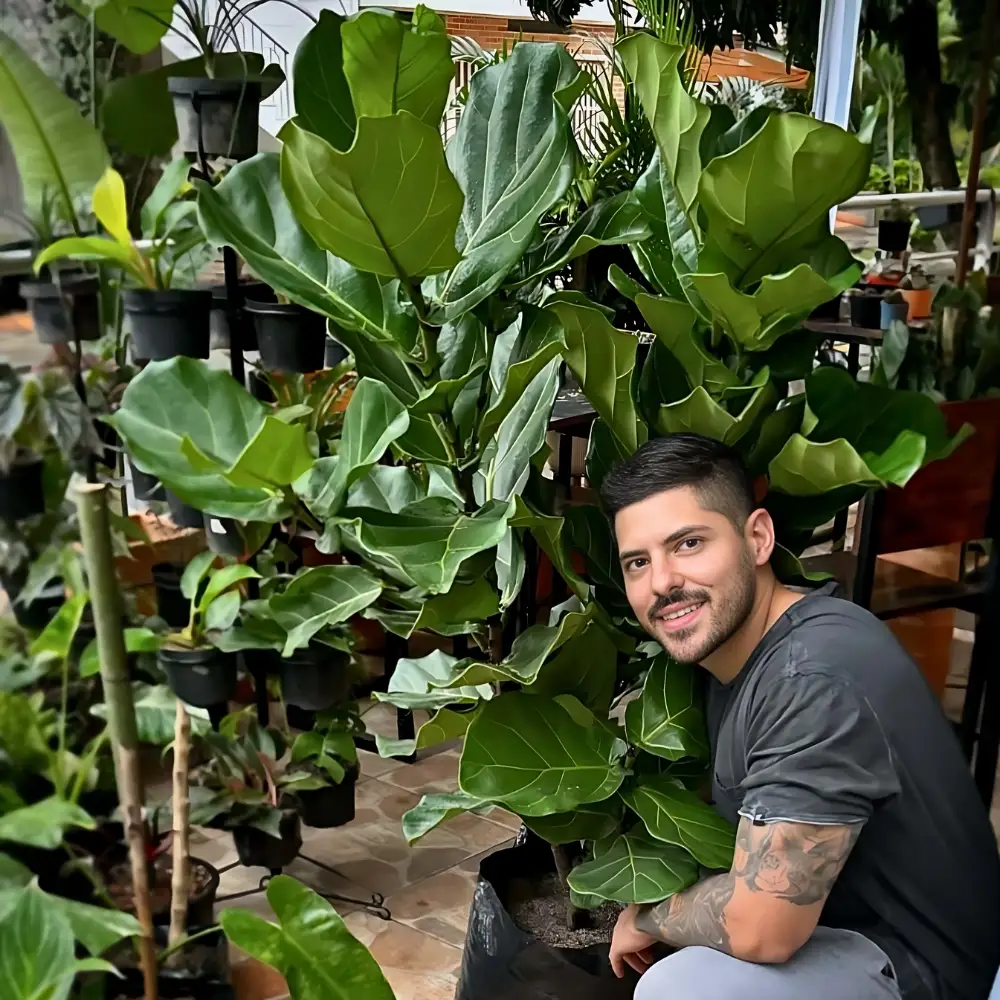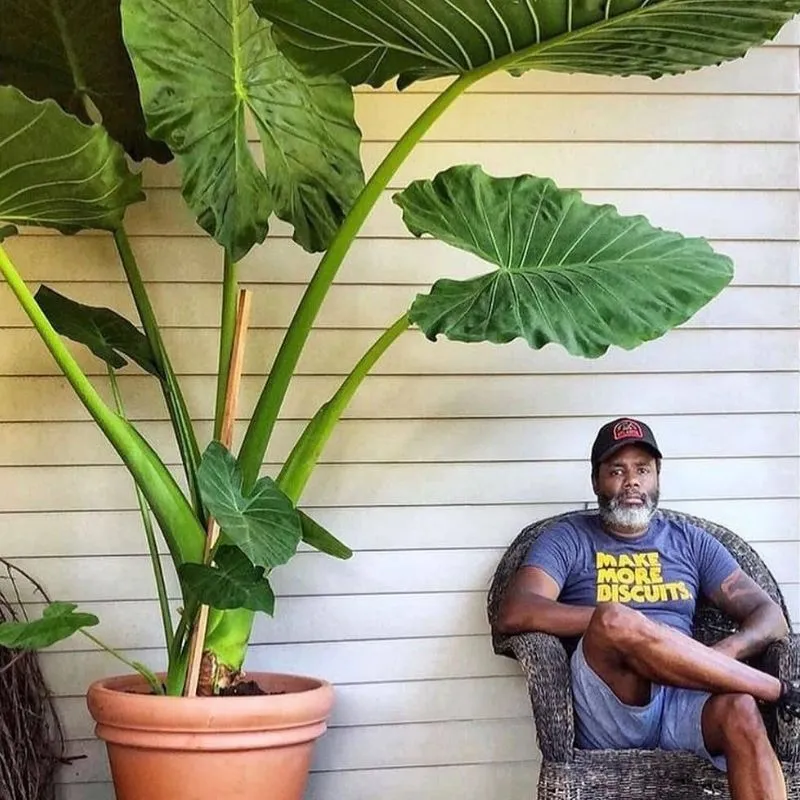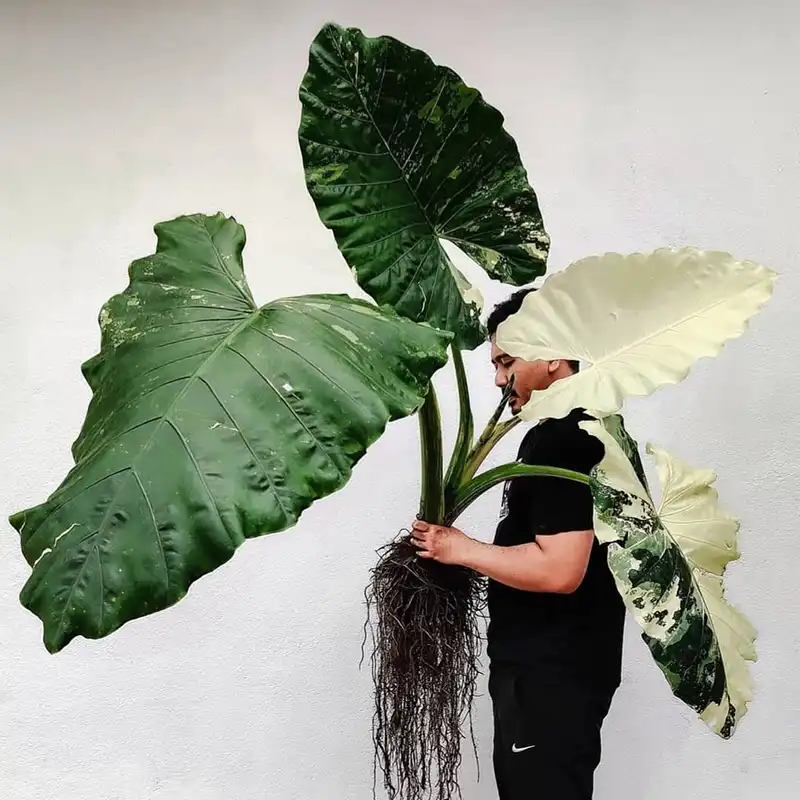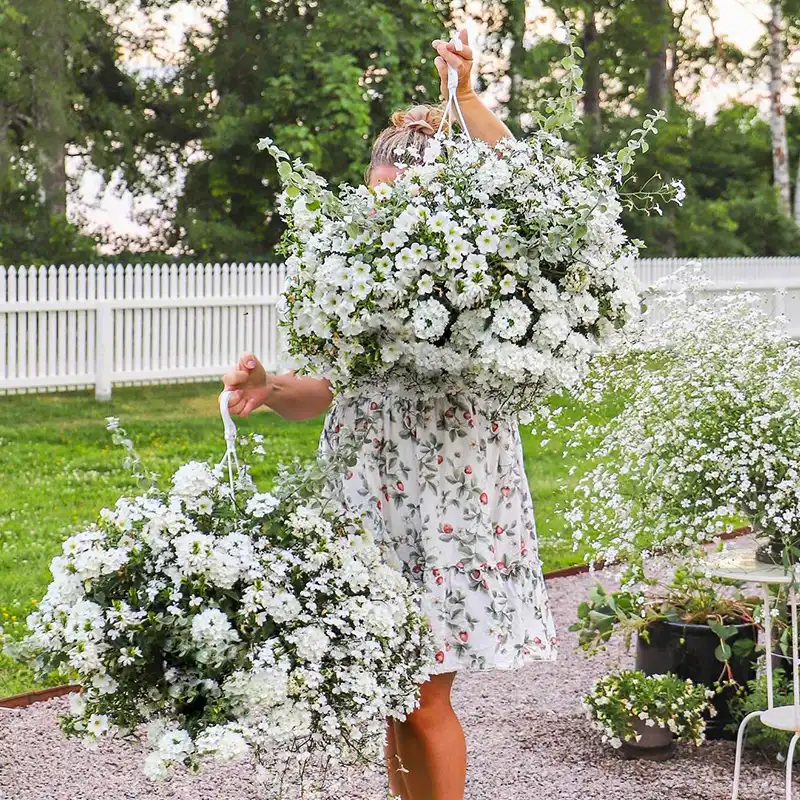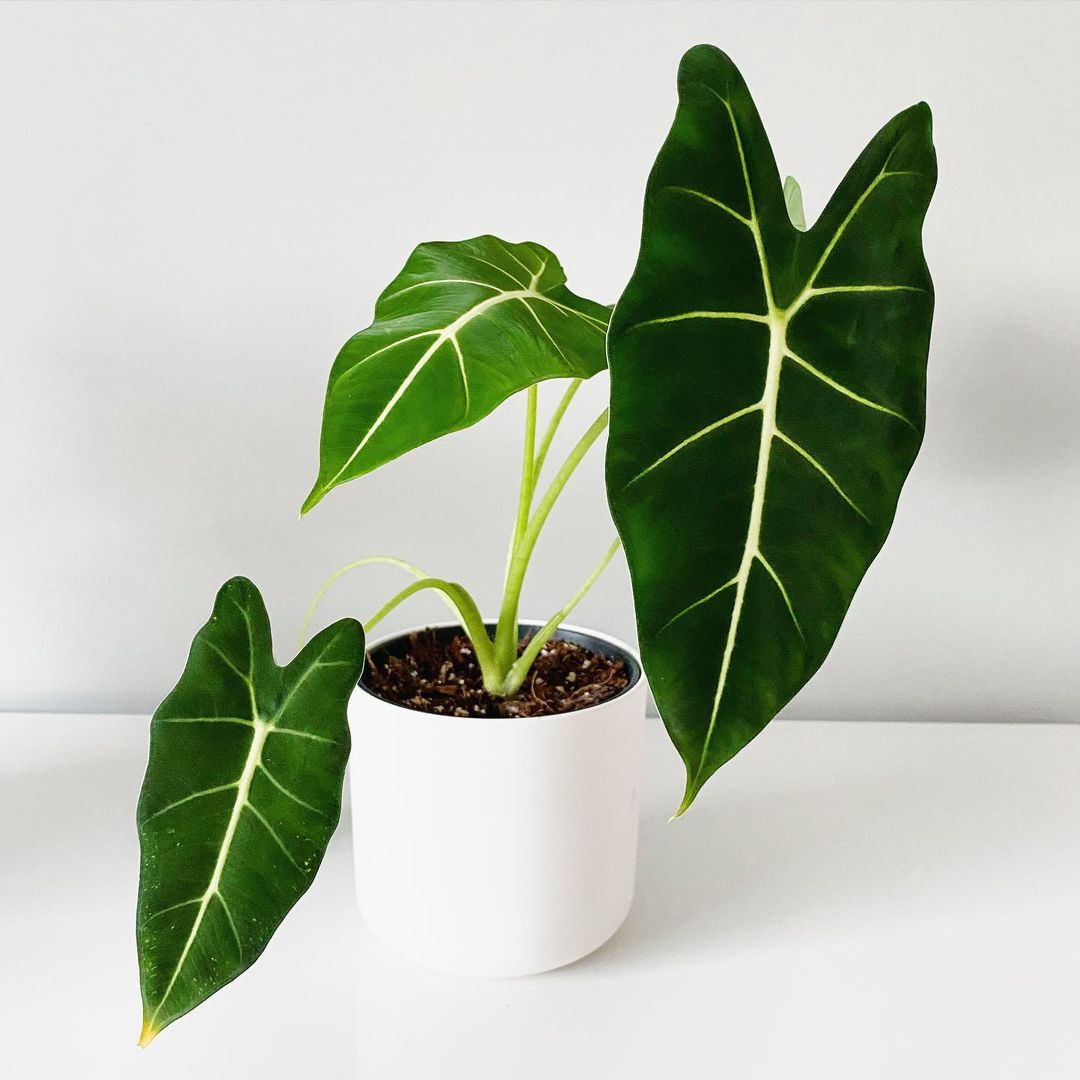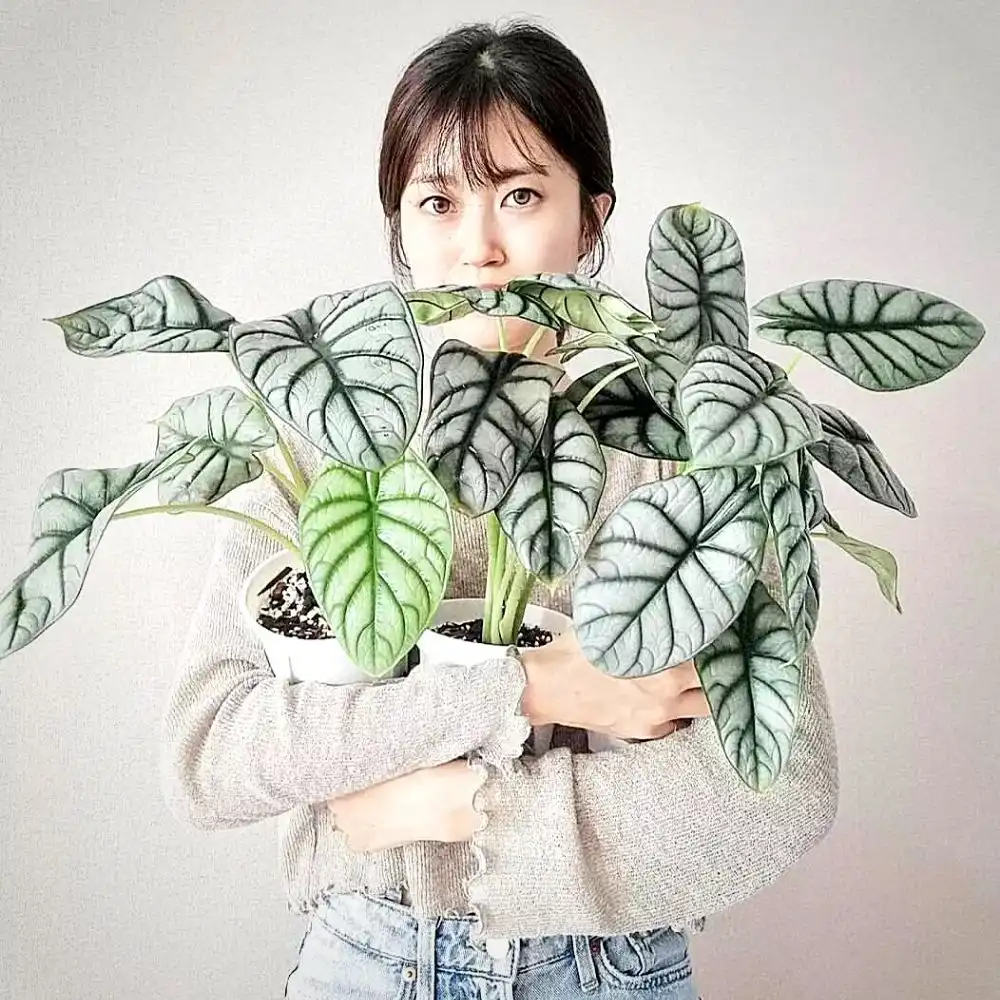Alocasia wentii is a houseplant that is loved by both novice and experienced plant enthusiasts alike. Its striking appearance and unique foliage make it a standout addition to any home decor, office, or tropical garden. Whether it's bohemian, tropical, modern, or even Japanese-inspired.
Read all about the origin, best uses, and care tips for this beloved plant, ensuring that your Alocasia wentii thrives, and you can show off to your friends, family, co-workers, or anyone else seeing this statement plant. You might also know this plant by the following common names.
- Hardy Elephant Ear
- Dwarf Elephant's Ear
- Upright Elephant Ear
- African Mask
- New Guinea Shield
Alocasia wentii Is a Plant Enthusiast's Dream
Alocasia Wentii is a gorgeous plant that will elevate any indoor or outdoor area. It is a standout piece with its glossy, heart-shaped leaves and striking veining. This tropical plant needs well-draining soil and bright, indirect light. Make sure the soil is damp but not soggy, and give the leaves frequent mists. Your Wentii Alocasia will flourish if given the right care.

Why Alocasia wentii is a Favorite Among Interior Designers
The allure of Alocasia wentii lies in its versatile aesthetic appeal. Interior designers favor this plant for its ability to complement various styles, from bohemian to modern interiors. The large, glossy leaves provide a lush, tropical feel, making it a perfect choice for creating a green oasis indoors. And making it a great statement plant in any tropical garden.
Bohemian interiors benefit from the wild, natural look of the Alocasia wentii. Its exotic leaves add a touch of the jungle, creating a relaxing and earthy atmosphere. For modern homes, the sleek, structured foliage of the Alocasia wentii adds a contemporary touch, providing a striking contrast to minimalist decor.
Japanese-inspired interiors, known for their focus on nature and simplicity, also find a perfect match in the Alocasia wentii. The plant's elegant leaves bring a sense of tranquility and harmony, enhancing the zen-like ambiance of such spaces.
Alocasia wentii variegated Is a Rare Gem
The Alocasia wentii variegated is a rare and highly sought-after variant of the standard Alocasia wentii. Its leaves feature stunning patterns and colors that can range from creamy whites to vibrant greens, making it a true showstopper in any plant collection. This variety is particularly prized by collectors and plant enthusiasts who appreciate its unique beauty.
Although the Alocasia wentii variegata requires similar care to its non-variegated counterpart, it does need a bit more light to maintain its vibrant coloration. Variegation in plants typically means that parts of the leaves have less chlorophyll, the pigment that gives leaves their green color and is crucial for photosynthesis. Place it in a bright, indirect light spot to ensure its leaves stay beautifully variegated.

This variant adds an extra layer of visual interest and can be a focal point in your home decor, drawing attention and admiration from visitors.
Alocasia wentii Care Tips
Proper care is crucial for the health and vitality of your Alocasia wentii. Here are some key tips to keep your plant thriving:
First, ensure your Alocasia wentii is planted in well-draining soil. This plant prefers soil that retains some moisture but doesn't become waterlogged. A mix of potting soil, perlite, and peat moss works well.
Water your Alocasia wentii regularly, but allow the top inch of soil to dry out between waterings. Overwatering can lead to root rot, a common issue for this species. In the winter, reduce watering frequency as the plant's growth slows down.
Lastly, provide your Alocasia wentii with high humidity. This tropical plant thrives in humid environments, so consider using a humidifier or placing a tray of water near the plant to increase moisture in the air. If that seems too much trouble, consider using a spray and mist water on it as often as you can.

Alocasia Houseplants Are Sweating!
Guttation, which is sometimes referred to as “sweating,” “weeping,” or “crying,” is a natural process where liquid droplets form on the tips or surface of perfectly healthy leaves. Often caused by overwatering the plant. While these droplets look like water, it is the excess water and minerals and is called xylem sap. Xylem sap is non-toxic and will not harm your furniture or floors; however, if larger plants start gutting and dripping, it can get quite messy.
Decorating with Alocasia wentii plants
Alocasia wentii plants are not only beautiful but also versatile in home decor. They can be used as statement pieces in living rooms, adding an art-like object in corners or next to furniture. Their large leaves create a sense of depth and movement, making spaces feel more dynamic and lively.
In bedrooms, Alocasia wentii plants can promote relaxation and enhance the calming atmosphere. Placing one near a window ensures it receives enough light while also serving as a natural air purifier.
Bathrooms can also benefit from the presence of Alocasia wentii plants. The high humidity levels in these spaces mimic the plant's natural environment, helping it to thrive. Plus, it adds a spa-like feel to the room, making your daily routines more enjoyable. Alocasia wentii is a plant that helps to reduce moisture in your bathroom, adding another usp to this plant's list of advantages.
Understanding the Origin of Alocasia wentii
The Alocasia wentii originates from the tropical rainforests of Southeast Asia, particularly New Guinea. It is a part of the Araceae family, which includes other popular houseplants like the Monstera and Philodendron.
The Alocasia wentii was discovered and named by Dutch botanist Dr. Friedrich Went. Dr. Went was a prominent botanist known for his work in the early 20th century. His contributions to botany included significant research on plant physiology and tropical plants. The Alocasia wentii was named in his honor to recognize his contributions to the field. Dr. Went's work helped in understanding various plant species, including those in the Alocasia genus. His research and discoveries have had a lasting impact on botany and the study of tropical plants, making his name well-known among plant enthusiasts and researchers.
Its natural habitat is characterized by high humidity and dappled sunlight, which is important to replicate when caring for the plant indoors. Understanding its origins can help in providing the ideal conditions to keep your Alocasia wentii healthy and thriving.
Native to lush forests, the Alocasia wentii has adapted to low-light conditions, making it suitable for indoor environments. However, ensuring it gets enough indirect light is crucial for maintaining its vibrant leaves.

Is Alocasia wentii toxic?
One important consideration for pet owners and parents is whether the Alocasia wentii is toxic. Unfortunately, like many plants in the Araceae family, the Alocasia wentii is toxic if ingested. It contains calcium oxalate crystals, which can cause irritation and discomfort if consumed by pets or humans.
If you have curious pets or young children, it's advisable to place the plant out of their reach. Symptoms of ingestion include mouth irritation, swelling, and digestive distress. Seek medical attention if ingestion occurs.
Despite its toxicity, the Alocasia wentii can be safely enjoyed in homes with pets and children, provided proper precautions are taken to prevent accidental ingestion.
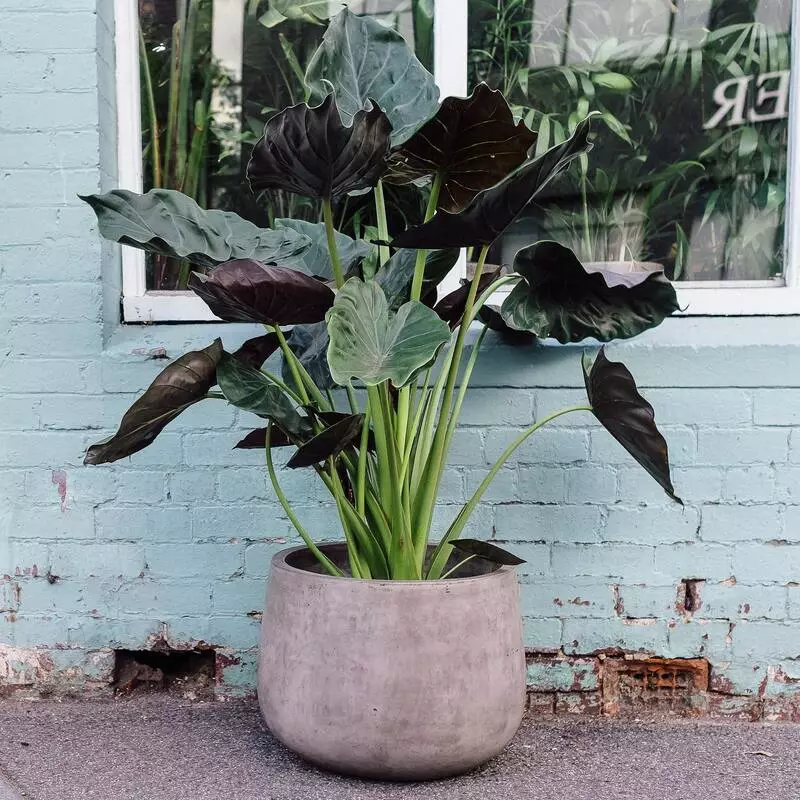
3 Reasons Why People Love the Alocasia wentii
- The Alocasia wentii is cherished by plant enthusiasts for several reasons. Its striking appearance is the primary draw, with its large, glossy leaves and unique shape making it a standout in any collection. The plant's ability to thrive in indoor environments with the right care adds to its appeal.
- Additionally, the Alocasia wentii is relatively low-maintenance compared to other tropical plants. Its resilience and adaptability make it a good choice for both beginners and experienced plant lovers.
- Finally, the Alocasia wentii offers a sense of accomplishment to its caregivers. Watching it grow and thrive is rewarding, and its presence can improve the overall aesthetic and atmosphere of a home.
Feature and header image by @pipiflower.

